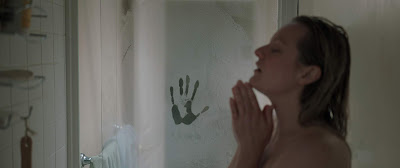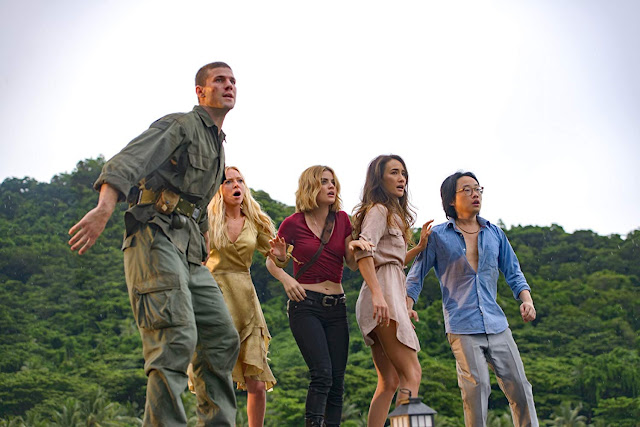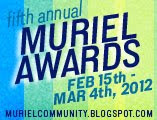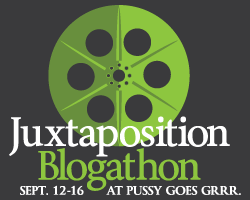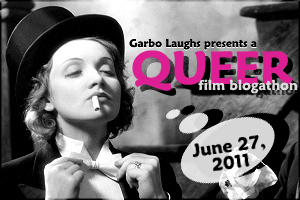One of the enduring challenges facing horror movies is finding things that really scare an audience. Most horror movies fail at this, or abstract it in a way that an audience can sidestep their fears and take them out for a walk without any risk. A horror movie that can lay those fears bare and weaponize them against an audience is a rare thing and is likely to alienate a mass audience. The things that scare people are so personal that it's hard to find something that will reliably scare a large audience. Better to offer a thrill ride. I say all of this because the new version of The Invisible Man (2020, directed by Leigh Whannell), is legitimately scary and not in a fun, thrill-ride sort of way. It finds a raw nerve and it exploits it without mercy. What this film plays as a fantasy is all too real for so, so many women who are the victims of abuse. The varieties of abuse are all there on the screen: physical, mental, financial, institutional; the whole of a society geared to dismiss the suffering of women comes under scrutiny of this film's clinical examination. It's like a slap in the face.
Saturday, February 29, 2020
Now You See Him
Posted by
Vulnavia Morbius
at
2:42 PM
0
comments
![]()
Labels: 2020, feminism, horror movies, The Invisible Man (2020)
Saturday, February 22, 2020
Island Reveries
I suppose it was too much to hope that a new version of Fantasy Island (2020, directed by Jeff Wadlow) would be something other than a bunch of moralizing twaddle. Moralizing twaddle was baked into the DNA of the old TV series. It's what made the show popular with the old ladies who were its primary audience. My grandmother loved the show, although that might also reflect her crush on Ricardo Montalban. There's a certain poetry in the original show's position as the follow-up to The Love Boat, given that it takes the privileged bourgeois characters of THAT show and holds up a mirror to their moral failings. That could work even today. It's not too surprising to see it re-imagined as a horror movie, either. The original 1977 pilot for the show had more than a little horror woven into it, particularly that weird Gothic ambience unique to 1970s tv movies. Horror tropes abounded throughout the series original run from the outset. The pilot featured a riff on The Most Dangerous Game and another story about a woman who wants to attend her own funeral, after all. It was a sunlit variation of The Twilight Zone at Rod Serling's most didactic. So the new movie, which includes both the moralizing and the tired horror tropes, is at least recognizable as descended from the original show.
Posted by
Vulnavia Morbius
at
9:54 AM
0
comments
![]()
Labels: 2020, Fantasy Island (2020), horror movies, Posters
Saturday, February 08, 2020
Screwed
"But he had already jerked straight round, stared, glared again, and seen but the quiet day. With the stroke of the loss I was so proud of he uttered the cry of a creature hurled over an abyss, and the grasp with which I recovered him might have been that of catching him in his fall. I caught him, yes, I held him—it may be imagined with what a passion; but at the end of a minute I began to feel what it truly was that I held. We were alone with the quiet day, and his little heart, dispossessed, had stopped." --Henry James, The Turn of the Screw
If you fall down the rabbit hole of genre taxonomy,* one of the things you'll discover is how fuzzy and indistinct the borders between genres really are. Nowhere is that more evident than in trying to draw an outline around what constitutes the horror story. If you look too hard at horror as a genre, then it evaporates before your very eyes, with its component parts ordering themselves either as dark fantasy and psychological suspense. Horror, as has been said by sharper horror scholars than I, isn't really a genre at all, but is rather an emotion. An emotion can come from anything. The things that scare and disturb us are protean and idiosyncratic and cannot be contained within the boundaries of a literary genre. It seems to me, though, that there is a horror genre composed of a common pool of archetypes and narrative tropes and that you can't fractionate those generic elements based on whether or not something is supernatural or naturalistic or however you want to order things. The corpus colossum that unites the various lobes of the horror genre is Henry James's The Turn of the Screw with its famously ambiguous unreliable narrator. Is it a supernatural ghost story or a tale of ordinary madness? The story is cryptic on this matter. This is a challenge to later interpreters, particularly to filmmakers. Jack Clayton's The Innocents is more or less successful at straddling this divide, but not every version has the kind of blue-blooded cinematic bona fides that that film has. The latest version in the cinema (as opposed to the one that's coming as a series to Netflix) has no such pedigree. The Turning (2020, directed by Floria Sigismondi) attempts to split the difference. Literally.
Spoilers, I guess.
Posted by
Vulnavia Morbius
at
12:48 PM
0
comments
![]()
Labels: 2020, films by women, horror movies, The Turning
